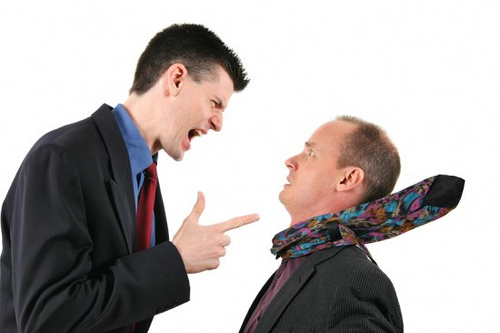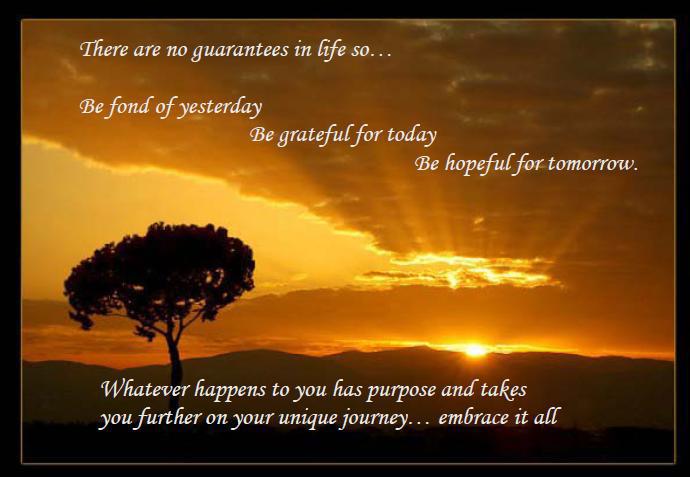The other day, a colleague of mine asked me to contact someone to offer them some “technical” assistance. The “customer” had been told that someone would contact them soon to help him “solve his problem” but when I called him, things did not go as I expected.
Whenever I seek assistance from someone else, I am always very grateful for their time and effort. After all, they are not required to help me; they have chosen to help me. Even when I contact a call center (for something like a problem with my cell phone) and speak with someone who is a complete stranger, I am always very gracious and kind to my “helper” because I know how I treat him or her has a big affect on the type of service I receive.
I do this at the checkout in the grocery store.
I do it at the drive thru window.
I do it at the bank.
I do it when I’m in a retail store.
This approach is just part of who I am.
Most people who ask me for help take a similar approach with me. It is nice to hear someone say “Thank you so much for all your help, I really appreciate it.” So, when I made my phone call and the “customer” answered with a “rough” tone, I was a bit taken aback.
I explained that I had called to help him correct his problem. He curtly replied that he knew what was wrong and wanted to know what I was going to do to fix it. I asked him a few questions to clarify what was wrong and what, if any, testing he had done to verify the problem. He responded curtly again that he didn’t need to do any testing because he’d been “doing this for 20 years and knew what was wrong” and wanted someone on site immediately to fix “our problem.” I explained that I would have to get in touch with the “Service Group” to see if we could send someone to his location to correct the issue and promised to call him back later with the logistics.
I contacted the “Service Group” and they informed me they were fairly busy at the moment, would need to see what they could shuffle around to send someone out the next day, and would call me back as soon as they had more information. Around 45 minutes later, while I was awaiting the Service Group’s call, the customer called me back.

He identified himself and I responded “hello” and there was silence on the phone.
“Do you know why I am calling?”
“No sir, I do not. Is something else wrong?”
“You said you would call me back to let me know when someone was showing up tomorrow.”
“No sir, I told you I would contact the Service Group and I have not heard back from….”
[he then began talking over me]
“Don’t get smart with me; when is someone coming?”
“I don’t know yet and there’s no need to get upset. As I said I’m waiting….”
“You need to get someone up here now. I’m not happy that this is not resolved and you need to make something happen”
“As I said I’m awaiting a….”
“Sir, Sir, SIR? Can’t you hear I’m being polite”
“You are using the word ‘Sir’, but you are not being polite.”
He continued to berate me about what a horrible job I was doing. His voice became louder and he was belligerent and I finally said:
“I have never had anyone talk to me this way. I am working to solve the problem and I will call you back as soon as I have more information”
“You will call me back by the end of the day with details about who will be here tomorrow. Is that clear?”
“I heard you; and I will call you back by the end of the day.”
When I got off the phone, a colleague of mine who overheard my side of the conversation said “You hung in there longer than I would have; I would have just hung up. Are you ok?” When he asked me if I was ok, I was stunned. I hadn’t realized it at the time, but the entire experience had shaken me and my colleague could see it…in fact, he could feel feel it. What had happened, which took me a bit to realize, was that I had gotten extremely angry.
For the most part, I don’t allow anger to overwhelm me. When I feel it, I just allow it, experience it and it moves through me fairly quickly. As I thought more about the situation, I realized this “customer” had triggered some of my EchosTM about having other people “come at me” and feelings of helplessness I’ve had in my past. This resulted in a level of anger I had not felt in a long, long time. In addition, I was disappointed in myself that, because of my EchosTM, I was not able to handle the situation in a better way. I was “distracted” for the rest of the day as I replayed the situation in my mind over and over again.
Later that night, I finally realized that there may not have been anything I could have done to change the situation for one simple reason:
The customer was going to act how he was going to act because of his stuff.
It’s not our job to make people act kindly; all we can do is show them how and hope they follow. If not, we must continue on our journey and allow them to continue on theirs regardless of how much we feel obligated to “help” them. Some people do not want to be “reached” and that’s ok. No matter how hard we try, we may not be able to “connect” with them and that will hinder our communication every time.
 Whenever something like this happens to me, whenever I am “thrown off” by a situation or event, one of the things I do is to “tune into” the lessons that are being presented to me. It is in times like these that I am most reminded that there are no accidents and everything happens for us not to us.
Whenever something like this happens to me, whenever I am “thrown off” by a situation or event, one of the things I do is to “tune into” the lessons that are being presented to me. It is in times like these that I am most reminded that there are no accidents and everything happens for us not to us.
Although I did not enjoy the experience, I was reminded of some EchosTM that still require some of my attention for my continued growth along my journey. I also realized that in spite of my anger, was able to calmly “stand in my truth” and let the other person know that he was not speaking to me politely. Finally, I decided that the next time I feel this happening, I will not hesitate to remove myself from the situation rather than continue to take “abuse” from someone. We all must love ourselves enough not to accept that type of behavior from others.
Also by no coincidence there was the video that was sent to me just today by Julian Treasure. Julian’s vision is to make the world sound beautiful through conscious awareness of it. In the video he describes some of the key aspects of effective communication he has learned during his career which I found very worthwhile.
Connected Communications happen easily when we remember one simple thing: we are all connected. What we do affects those around us whether it’s the kind way we interact with the cashier or the harsh way we respond when hurt by a loved one. As we increase our personal awareness, we can give ourselves permission to feel our own emotions without judgement and genuinely connect with others rather than simply reacting. And when we focus our energy in a positive way towards others, it takes much less time to get where we want to go.

You have brought up very superb details. Thank you for the post.